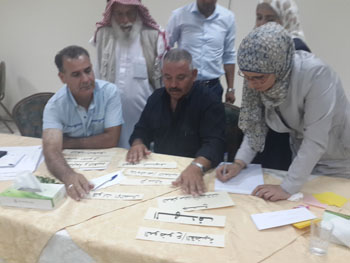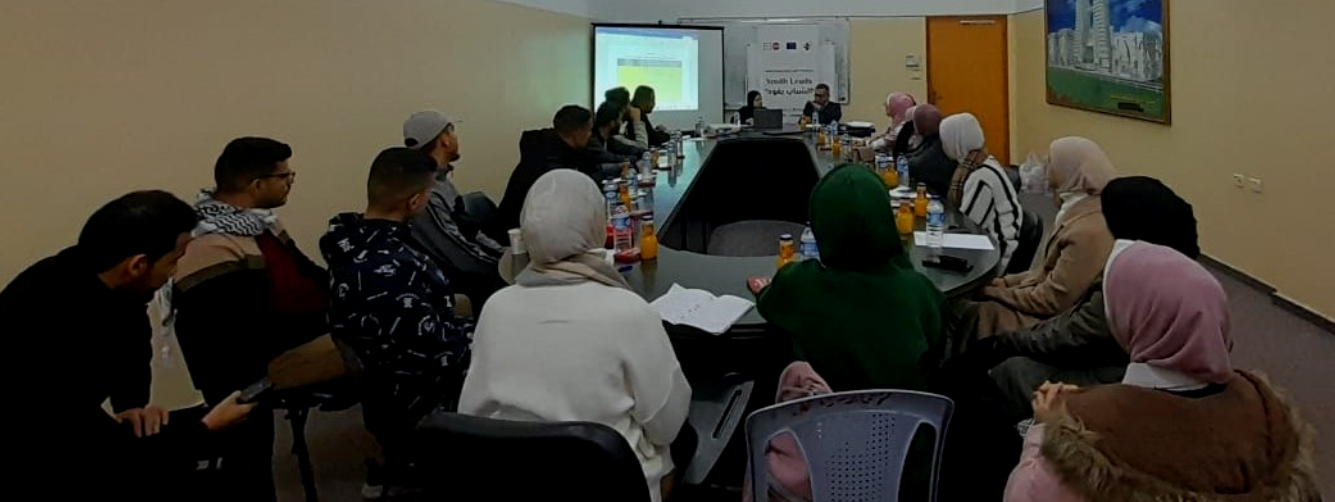
Ramallah -- A training program, part of the “Tajawoob project”, on a ‘review of the parents’ council guidebook and planning for the advocacy campaign” came to an end last week. The program also included educational governorates from the targeted districts: Qalqilya, the Jordan Valley, Bethlehem and the Jerusalem suburbs. Tajawoob is implemented by a consortium including MIFTAH, British council AMAN, Pal Vision, OXFAM, and BBC Media Action, and funded by DFID.
In the first of the training’s two phases, the subjects addressed included: mechanisms for promoting accountability by the parent’s councils regarding devising policies on education with a focus on promoting partnership and community accountability.
The second phase included a review of a guidebook for parents and planning for campaigns for advocacy, lobbying, mobilization and administration to promote communication between the parents councils and the Ministry of Education. There were calls for forming a union of parents’ councils in Palestine whereby this union would work to expand participation at the level of the districts and revive the role of parents’ councils in each district towards impacting educational policies under development. This would be conducted in a way that promotes community accountability through reaffirming the right of access to and dissemination of information.
The participants at the workshop recommended that the ministry grants certain authorities to the parents’councils in terms of citizens’ score cards, which gives the parents’ councils the opportunity to diagnose the points of weakness and strength and to initiate discussions between citizens and their representatives and officials at the Ministry of Education.
The participants also stressed on the need to form a special union for parents’ councils and to work on practical specifics and not just on the theoretical framework; that is, to involve the councils in developing the educational process , the guidebook and the procedures for the citizens’ score cards and finally to be involved in developing the code of conduct for parents’ councils and its adoption by the education ministry. This would promote a sustained impact of Tajawoob’s project and contribute to institutionalizing the concept of parents’ councils.
The participants in the training program also discussed the results of a research report on parents’ councils in Palestinian schools and offered several conclusions including: the philosophy behind forming parents’ councils is one that is based on a developmental and participatory vision , which strengthens the skills and potentials of the council members. This is so they could play an active role in improving the schools’ environment and other educational issues in addition to providing special budgets for these parent councils to support their influential role.
The participants committed to carrying out an advocacy and lobbying campaign on the aforementioned issues, through holding activities via the media, social network sites and introduction to citizens’ score cards, which they recommended to include it to the tools addressed in the parents’ council’s guidebook published by the Ministry of Education,. The campaign is planned to be conducted somewhere between November 2014 and February 2015.
Secretary of the parents’ council in Abu Dis Bilal Awad, says: “I hope such workshops continue because they are very beneficial and increase the awareness of parents’ councils’ memebers, especially since most parents aren’t aware of the role of these councils.” Awad explains that traditionally, the role of parents’ councils was confined to maintenance work and follow-up on the students’ daily problems. “So I really hope the Ministry of Education listens to us and responds to our demands,” adding that he would like to see a union grow out of the councils, which would be able to question and hold decision makers accountable so they could be more receptive and responsive to the councils’ demands and rights.







